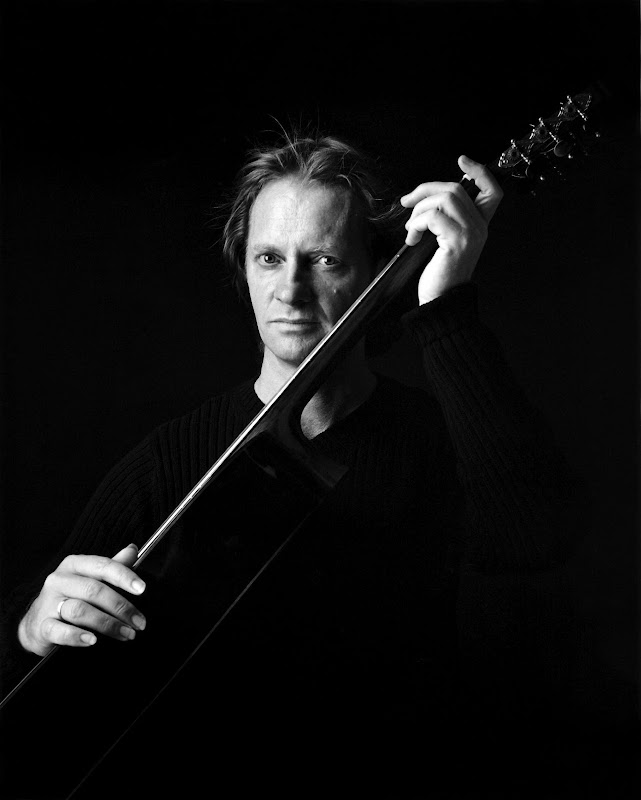Eric Clapton 1967 NYC Band Cream
Eric Clapton has been reinventing himself musically for more than 40 years. But the strong pulse of the blues has powered his guitar playing since the beginning: from the Yardbirds when he was 18, through his stints with John Mayall and the Bluesbreakers, Cream, and Derek and the Dominoes, to today.
Now 62, the legendary guitarist is the author of a new autobiography, Clapton.
In the first of a two-part interview, Clapton talks to Melissa Block about his musical influences as a young man.
'Uncle Mac' and the Blues
His first guitar, which he got when he was 13, was a steel-string Hoyer made in Germany. It was about as big as he was, Clapton recalls.
"It was a very cheap guitar. And most cheap guitars, as anyone will tell you who tries to play a cheap guitar … they hurt to play," Clapton tells Block.
"It sounded nice, but it was just such hard work, I gave up. So I started when I was 13 and gave up when I was 13 and a half," he says.
Clapton's introduction to the blues — the music that would forever influence his own work — came from an unlikely source: a children's radio show in the 1950s and '60s hosted by "Uncle Mac" (aka Derek McCulloch).
The show's usual fare was novelty children's music, such as "How Much Is That Doggie in the Window?"
But every now and then, Clapton says, Uncle Mac would slip in some blues.
"I don't know what this guy was on; I can't imagine how it would get snuck in, whether it was his taste or someone else's, his wife, who knows?" Clapton says.
I Got What They Were Trying to Do'
Clapton even remembers the first blues song he heard on the show: "Whoopin' the Blues" (full song audio) by harmonica player Sonny Terry and singer and guitarist Brownie McGhee.
"That's where it started for me," he says.
"It got to me on a level that nothing else did. I got what they were trying to do," Clapton says.
"I think the purity of what they were trying to do undercut everything else that you could hear on the radio. Aside from great classical music or great opera, there was a seriousness about it that none of this other music had."
Listening to, Learning from the Greats
Other guitarists that Clapton listened to — and learned from — in those early years include Big Bill Broonzy and Muddy Waters.
Broonzy was "just an extremely good technician" and a "great player."
As he listens to a recording of Broonzy's "Hey Hey" (full song audio), Clapton notes the audible sound of the guitarist's foot tapping.
"His rhythm — it's absolutely perfect," Clapton marvels.
Waters' Playing Acted as 'Milestone'
Perhaps the blues guitarist who influenced Clapton the most is Muddy Waters.
"Muddy was there at a time when, really, the music was getting to me. I was really trying to grasp it and make something out of it," Clapton says.
Clapton says he would listen to a Waters' song such as "Honey Bee" (song clip audio) and try to emulate the guitar great's technique and the effect he created with his playing — in this instance, the chime-like sound of a bell.
"It was a hook to me. And I made this as a sort of milestone for me, for my learning capabilities," Clapton says.
"If I can get that, I'm one rung up the ladder. And I did, finally, manage to do it one day, and I thought, well, you know, I think I can probably do this."
A Mentor and Friend
The two guitarists played together later and became very close. In his book, Clapton describes Waters as "the father figure I never really had." Until his death in 1983, Waters was a part of Clapton's life.
Even so, Clapton says he was not comfortable enough — and perhaps too proud — to ask Waters technical questions about his playing.
"I wish I had," he says now.
But there was more than just professional pride at work.
"When I got to know Muddy, unfortunately, my drinking career was in full sway," Clapton says.
"He liked to drink, too, he wasn't really down on it or anything, but I was definitely not really there as much as I wish I had been."
Clapton Eric Norman Watson

















